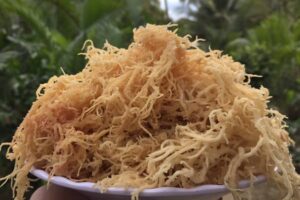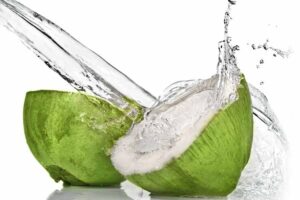In recent years, the demand for organic food products has surged as consumers become more health-conscious and environmentally aware. Among these organic offerings, organic mayonnaise has garnered attention for its natural ingredients and sustainable sourcing. This article aims to delve into the realm of organic mayonnaise, shedding light on its characteristics, benefits, production, market trends, culinary uses, and more.
What is Organic Mayonnaise?
Organic mayonnaise is a condiment crafted from organic ingredients, including organic eggs, oil, vinegar, and seasonings. Unlike conventional mayonnaise, organic varieties are made from ingredients that are grown and processed without the use of synthetic pesticides, fertilizers, or genetically modified organisms (GMOs), adhering to organic farming standards.
Benefits of Organic Mayonnaise
The appeal of organic mayonnaise lies in its array of benefits. By using organic ingredients, this creamy condiment offers a healthier alternative to its non-organic counterpart. Organic mayonnaise is free from artificial preservatives, colors, and flavors, making it a more natural and wholesome choice. Additionally, the adoption of organic farming practices contributes to environmental sustainability and supports biodiversity.
Production and Certification
The production of organic mayonnaise involves sourcing high-quality organic eggs, cold-pressed organic oils, and organic vinegar, often combined with organic spices and seasonings. To ensure the organic integrity of the final product, manufacturers must adhere to stringent organic certification standards and regulations. This includes maintaining transparency throughout the supply chain and obtaining organic certifications from reputable certifying bodies.
Market Trends and Consumer Demand
As the organic food market continues to expand, consumer interest in organic condiments, including mayonnaise, has risen. Health-conscious consumers are drawn to organic mayonnaise for its natural and nutritious attributes. Additionally, the ethical and sustainable practices associated with organic production resonate with environmentally conscious individuals, further fueling the demand for organic mayonnaise.
Culinary Uses and Recipes
Organic mayonnaise is a versatile ingredient that transcends traditional culinary boundaries. It serves as a foundational component in numerous recipes, ranging from classic salads and sandwiches to innovative dips and dressings. Its creamy texture and rich flavor make it a beloved addition to a wide array of dishes, exemplifying its culinary adaptability.
FAQ
- Is organic mayonnaise healthier than regular mayonnaise?
Organic mayonnaise is often considered healthier than regular mayonnaise because it is made from organic ingredients that are free from synthetic pesticides, fertilizers, and GMOs. It also avoids artificial preservatives, colors, and flavors commonly found in regular mayonnaise. - What are the key ingredients in organic mayonnaise?
The key ingredients in organic mayonnaise include organic eggs, organic oil (such as sunflower or avocado oil), organic vinegar (typically apple cider vinegar), and organic spices or seasonings. - How is organic mayonnaise made?
Organic mayonnaise is made by emulsifying organic egg yolks with organic oil and vinegar, while adding spices or seasonings for flavor. It involves a blending process to create a creamy and stable texture. - Where can I find organic mayonnaise?
Organic mayonnaise can be found in many grocery stores, health food stores, and online retailers. Look for products labeled as “organic” and check the condiment aisle or the organic section of the store. - Does organic mayonnaise taste different from regular mayonnaise?
Organic mayonnaise generally has a similar taste to regular mayonnaise, but some people believe that organic versions offer a fresher and more natural flavor due to the absence of artificial additives. - Is organic mayonnaise more expensive than regular mayonnaise?
Yes, organic mayonnaise tends to be slightly more expensive than regular mayonnaise due to the higher cost of organic ingredients and the adherence to organic farming practices. However, the price may vary depending on the brand and location. - Can organic mayonnaise be used in recipes like regular mayonnaise?
Absolutely! Organic mayonnaise can be used as a substitute for regular mayonnaise in any recipe. It can be used in sandwiches, salads, dressings, dips, and various other culinary creations. - Is organic mayonnaise suitable for vegans?
Traditional organic mayonnaise contains eggs, making it unsuitable for vegans. However, some brands offer vegan-friendly options made with plant-based ingredients like aquafaba or soy-based products. - How long does organic mayonnaise last?
Like regular mayonnaise, the shelf life of organic mayonnaise varies depending on the brand and storage conditions. Typically, unopened organic mayonnaise can last several months in the refrigerator, while opened jars should be consumed within a few weeks. - Can I make my own organic mayonnaise at home?
Yes, you can make your own organic mayonnaise at home using organic ingredients. There are numerous recipes available online that guide you through the process, allowing you to customize the flavors to your liking while ensuring organic integrity.
Conclusion
In conclusion, organic mayonnaise embodies a harmonious blend of healthfulness, sustainability, and culinary versatility. As consumer preferences continue to align with natural and organic choices, the allure of organic mayonnaise is poised to endure. Its journey from farm to table, marked by organic integrity and delectable appeal, underscores its significance in the realm of organic condiments, paving the way for a flavorful and conscientious dining experience.



